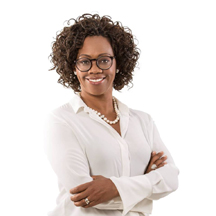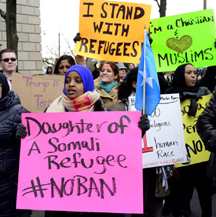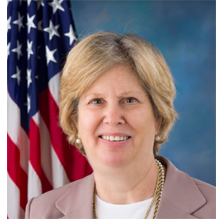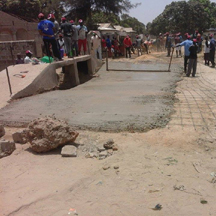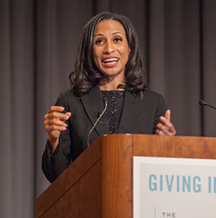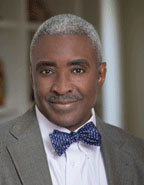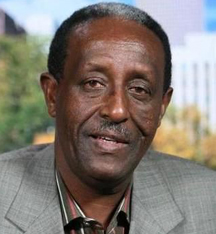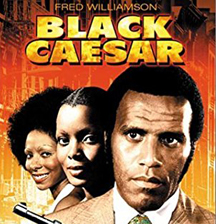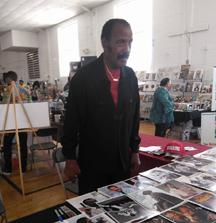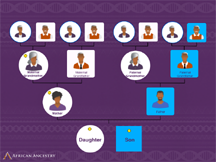First Black Female VP | Black Immigrants Pay Taxes, Too | Vote to Raid Social Security
Having trouble viewing this email? Click here
Having trouble viewing this email? Click here
April 26 – May 09, 2018
Sorry, we are late delivering due to technical issues. Thank you for your patience.
On The Dock This Issue:

First Black Female Vice President in the Americas Takes Office in Costa Rica
When Epsy Campbell Barr become the first Black female vice president in Costa Rica on May 8, she also became the first Black female vice president in all of the Americas.
When Epsy Campbell Barr become the first Black female vice president in Costa Rica on May 8, she also became the first Black female vice president in all of the Americas.
How do Undocumented Immigrants Pay Federal Taxes? An Explainer
All undocumented immigrants also help make the Social Security system more solvent, as they pay into the system but are ineligible to collect benefits upon retiring.
All undocumented immigrants also help make the Social Security system more solvent, as they pay into the system but are ineligible to collect benefits upon retiring.
233 Congresspeople Tried to Raid $2.9 Trillion Social Security Surplus
When Social Security runs a surplus, Social Security holds the funds in trust. Social Security currently has a $2.9 trillion accumulated surplus.
When Social Security runs a surplus, Social Security holds the funds in trust. Social Security currently has a $2.9 trillion accumulated surplus.
POHGEP Group Completes New Project in The Gambia
BYDA is one of the groups that readers, like you, support through POHGEP.
BYDA is one of the groups that readers, like you, support through POHGEP.
New Philanthropic Tool
Una Osili, whose is of Nigerian descent, leads the research and publication of the new index and Giving USA, the annual report on American philanthropy.
Una Osili, whose is of Nigerian descent, leads the research and publication of the new index and Giving USA, the annual report on American philanthropy.
Blacks and Whites Still Differ in Their Willingness to Participate in Health Research Studies
According to the study, trust building should be a key component of healthcare professional training and practice.
According to the study, trust building should be a key component of healthcare professional training and practice.
Readers' Trends
See what is most popular in Port Of Harlem's e-mailed issue, and on our web, Pinterest, and Facebook pages.
See what is most popular in Port Of Harlem's e-mailed issue, and on our web, Pinterest, and Facebook pages.
When Epsy Campbell Barr become the first Black female vice president in Costa Rica on May 8, she also will become the first Black female vice president in all of the Americas. And, it is a milestone she is not taking lightly.
"It will be a responsibility not only to represent people of African descent but to represent all women and men in the country, a country that gives us all the same opportunities," Campbell Barr told website CRHoy. "It would not be the first only in Costa Rica but in Latin America. And eventually, if the president leaves the country, [I would be] the first woman of African descent to assume the presidency (on) the entire American continent. It's a big responsibility," she continued.
Afro-Costa Rican Javier Barker, who lives in Washington, D.C., said upon her surprising victory, "I did not expect that could happen." The author of "Images of America-Eastland Gardens," added, "I did not even know a person of color was running until my niece in Costa Rico called me."
Campbell Barr is an economist, activist, and legislator who helped found the ruling Citizens' Action Party in 2000 and served in the legislature for six years (2002–2006 and 2014-2018), ran for vice president (2006), and for president (2010 and 2014). Barr is also the author of several books and articles on economic participation, democracy, sexism, racism, and people of African descent.
"It will be a responsibility not only to represent people of African descent but to represent all women and men in the country, a country that gives us all the same opportunities," Campbell Barr told website CRHoy. "It would not be the first only in Costa Rica but in Latin America. And eventually, if the president leaves the country, [I would be] the first woman of African descent to assume the presidency (on) the entire American continent. It's a big responsibility," she continued.
Afro-Costa Rican Javier Barker, who lives in Washington, D.C., said upon her surprising victory, "I did not expect that could happen." The author of "Images of America-Eastland Gardens," added, "I did not even know a person of color was running until my niece in Costa Rico called me."
Campbell Barr is an economist, activist, and legislator who helped found the ruling Citizens' Action Party in 2000 and served in the legislature for six years (2002–2006 and 2014-2018), ran for vice president (2006), and for president (2010 and 2014). Barr is also the author of several books and articles on economic participation, democracy, sexism, racism, and people of African descent.
Like many African descendents in European and European descendent dominated countries, Campbell has resisted the required reading of racist books in public schools. She resisted, for instance, "Cocorí," written in 1947 by Joaquín Gutiérrez (see illustrations from the book in Tico Times).
"And eventually, if the president leaves the country, [I would be] the first woman of African descent to assume the presidency (on) the entire American continent. It's a big responsibility"
Only about eight percent of the Costa Rican population claim to be mulatto or Black/Afro-Caribbean in a country about the size of West Virginia or Denmark. However, with 4.8 million people, the Central American country has about three million more people than the Mountain State.
Campbell Barr won her historic seat with newly seated president Carlos Alvarado. They won by a large margin against evangelical singer Fabricio Alvarado (no relation) who ran an anti-same-sex-marriage campaign.
Note: Click here to see and hear Vice President Barr.
"And eventually, if the president leaves the country, [I would be] the first woman of African descent to assume the presidency (on) the entire American continent. It's a big responsibility"
Only about eight percent of the Costa Rican population claim to be mulatto or Black/Afro-Caribbean in a country about the size of West Virginia or Denmark. However, with 4.8 million people, the Central American country has about three million more people than the Mountain State.
Campbell Barr won her historic seat with newly seated president Carlos Alvarado. They won by a large margin against evangelical singer Fabricio Alvarado (no relation) who ran an anti-same-sex-marriage campaign.
Note: Click here to see and hear Vice President Barr.
The IRS estimates that undocumented immigrants pay over $9 billion in withheld payroll taxes annually.
And, seven of 100 undocumented immigrants are of African descent says UndocBlack.
All undocumented immigrants also help make the Social Security system more solvent, as they pay into the system but are ineligible to collect benefits upon retiring. In 2010, $12 billion more was collected from Social Security payroll taxes of undocumented workers than were paid out in benefits.
All undocumented immigrants also help make the Social Security system more solvent, as they pay into the system but are ineligible to collect benefits upon retiring. In 2010, $12 billion more was collected from Social Security payroll taxes of undocumented workers than were paid out in benefits.
Undocumented immigrants are eligible for very few federal benefits. One notable tax benefit that they have traditionally been eligible for is the Child Tax Credit (CTC), a partially refundable credit designed to support low-income families based on their dependent children. A report from the Treasury Department estimated that undocumented immigrants received $4.2 billion in refundable child tax credits in 2010, or roughly one-eighth of the total paid.
However, last year's tax law (mostly backed by Republicans) changed eligibility requirements by making the refundable portion of the child tax credit only available to filers whose dependents have valid Social Security numbers, therefore rendering Individual Taxpayer Identification Number (ITIN) filers with undocumented children unable to claim the CTC for those dependents.
Read More
However, last year's tax law (mostly backed by Republicans) changed eligibility requirements by making the refundable portion of the child tax credit only available to filers whose dependents have valid Social Security numbers, therefore rendering Individual Taxpayer Identification Number (ITIN) filers with undocumented children unable to claim the CTC for those dependents.
Read More
"Every pay period, starting with our first jobs, America's workers contribute to Social Security. The program uses those funds to pay all benefits and related administrative costs. Social Security does not add even a penny to the deficit, as Republican President Ronald Reagan so clearly stated when he was president.
When Social Security runs a surplus, Social Security holds the funds in trust. Social Security currently has a $2.9 trillion accumulated surplus. In the guise of a so-called balanced budget amendment, 233 members of the House of Representatives just voted to pretend that the accumulated surplus does not exist.
Ninety-seven percent of Republicans just voted to steal those past contributions. They voted, in effect, to not pay back hardworking Americans when those funds will be needed to pay their earned benefits. (Ninety-six percent of Democrats voted to honor their commitment to the American people.)
When Social Security runs a surplus, Social Security holds the funds in trust. Social Security currently has a $2.9 trillion accumulated surplus. In the guise of a so-called balanced budget amendment, 233 members of the House of Representatives just voted to pretend that the accumulated surplus does not exist.
Ninety-seven percent of Republicans just voted to steal those past contributions. They voted, in effect, to not pay back hardworking Americans when those funds will be needed to pay their earned benefits. (Ninety-six percent of Democrats voted to honor their commitment to the American people.)
That 233 politicians would vote to steal this money is shameful. It helps explain the low regard the American people have for Congress. Fortunately for Social Security beneficiaries, the amendment did not attain the two-thirds majority required to pass the House. But those who voted for it are now on the record in support of stealing the American people's earned Social Security benefits.
A list of the Members of Congress who voted for the so-called balanced budget amendment is here.
Additional Port Of Harlem articles on this issue:
The Social Security Debate and Black America
March 25 - April 7, 2005
Social Security Expansion on the Table
July 21 – August 3, 2016
Your Retirement and Social Security Expansion
November 10 – November 23, 2016
A list of the Members of Congress who voted for the so-called balanced budget amendment is here.
Additional Port Of Harlem articles on this issue:
The Social Security Debate and Black America
March 25 - April 7, 2005
Social Security Expansion on the Table
July 21 – August 3, 2016
Your Retirement and Social Security Expansion
November 10 – November 23, 2016
During the rainy season in The Gambia, West Africa, the roads can be impassable. Roads are important for villagers to get to the hospital, school, and market. In the village of Nema Kunku, about an hour south of Banjul, the capital city, the roads are made of dirt; costly overpass bridges are out of the question. The rain also creates a temporary, but muddy river bed that crosses the road.
To assist the government with basic infrastructure projects, the Baobab Youth Development Association (BYDA) just completed a "recess bridge" to mitigate the road passage problem. The BYDA, which is supported by the Port Of Harlem Gambian Education Partnership, (POHGEP) dug a recess in the road to allow the water to flow over a newly concreted bottom of what will become a temporary muddy river bed.
When it rains, the water is allowed to pass over the concrete. When the water passes, instead of impassable mud, cars are able to pass over the concreted temporary river bed. People on foot are able to use the adjacent footbridge that BYDA constructed to walk over the temporary river.
To assist the government with basic infrastructure projects, the Baobab Youth Development Association (BYDA) just completed a "recess bridge" to mitigate the road passage problem. The BYDA, which is supported by the Port Of Harlem Gambian Education Partnership, (POHGEP) dug a recess in the road to allow the water to flow over a newly concreted bottom of what will become a temporary muddy river bed.
When it rains, the water is allowed to pass over the concrete. When the water passes, instead of impassable mud, cars are able to pass over the concreted temporary river bed. People on foot are able to use the adjacent footbridge that BYDA constructed to walk over the temporary river.
BYDA is one of the groups that readers, like you, support through POHGEP. POHGEP currently provides administrative and technical support to the group, clothes and goods for resale, and 22 K-12 education sponsorships.
Also recently, a BYDA member, Jallow M Alieu, who moved to Holland, helped facilitate via Geven voor Gambia, BYDA's donation of three beds, one examination table with a stool, and nine boxes of sanitary pads to the Bundung Maternal and Child Health Hospital maternity ward. BYDA is now embarking on a soap making business.
Also recently, a BYDA member, Jallow M Alieu, who moved to Holland, helped facilitate via Geven voor Gambia, BYDA's donation of three beds, one examination table with a stool, and nine boxes of sanitary pads to the Bundung Maternal and Child Health Hospital maternity ward. BYDA is now embarking on a soap making business.
"We still have significant gaps (of data from) sub-Saharan Africa," said Una Osili, while announcing the release of the 2018 Global Philanthropy Environment Index at the Hudson Institute in Washington. The index offers a framework to better understand what works to encourage philanthropic action across different cultures. The index became available online April 30 revealed Osili, the director of research for the Indiana University Lilly Family School of Philanthropy.
She told Port Of Harlem that African data is missing because her organization did not have the needed country-based experts. However, she affirmed, that her group has since rectified their data collection operation.
The current index provides comprehensive information about the philanthropic environment in 79 countries and economies around the world using a standard instrument completed by country-based experts. It evaluates five areas of philanthropy including the ease of operating a philanthropy organization, tax incentives, ease of transferring funds across borders, political environment, and its socio-cultural environment.
She told Port Of Harlem that African data is missing because her organization did not have the needed country-based experts. However, she affirmed, that her group has since rectified their data collection operation.
The current index provides comprehensive information about the philanthropic environment in 79 countries and economies around the world using a standard instrument completed by country-based experts. It evaluates five areas of philanthropy including the ease of operating a philanthropy organization, tax incentives, ease of transferring funds across borders, political environment, and its socio-cultural environment.
Out of the 11 regions, the United States and Canada rated number one. Sub-Saharan Africa ranked 10, just ahead of the Middle East and Northern Africa.
Osili, whose is of Nigerian descent, leads the research and publication of the new index and "Giving USA," the annual report on American philanthropy. Since fall 2016, she has led the research and publication of Index of Global Philanthropy and Remittances and Index of Philanthropic Freedom.
She is also an associate dean for research and international programs at the Indiana University Lilly Family School of Philanthropy, the world's first school dedicated to increasing the understanding of philanthropy and improving its practice worldwide.
Osili, whose is of Nigerian descent, leads the research and publication of the new index and "Giving USA," the annual report on American philanthropy. Since fall 2016, she has led the research and publication of Index of Global Philanthropy and Remittances and Index of Philanthropic Freedom.
She is also an associate dean for research and international programs at the Indiana University Lilly Family School of Philanthropy, the world's first school dedicated to increasing the understanding of philanthropy and improving its practice worldwide.
Racial and ethnic minorities, especially Africa-Americans, are significantly less likely to participate in health-related research than Whites, says a new study from Ball State University.
Dr. Theo Hodge, Jr., who serves as a principal investigator or sub investigator for various health-related studies, told Port Of Harlem, "It's harder to get Blacks to participate because of the history with these studies in our community." He blames the Tuskegee studies (conducted between 1932 and 1972 by the U.S. Public Health Service) for the high level of distrust. "It still causes rift in our community," he says.
"The lack of racial ethnic minority participates impedes the testing, development, implementation, and evaluation of various clinical and community based disease prevention and health promotion interventions," says Jagdish Khubchandani, a community health education professor at Ball State's College of Health and author of the study "Black/White Differences in Willingness to Participate and Perceptions about Health Research."
The research, which was recently published in "Journal of Immigrant and Minority Health," examines health research participation history and willingness to participate. According to the findings, lesser-educated, older, and male African-Americans are less likely to participate in health research studies.
Researchers found that about 15 percent of African-American respondents have participated in a health research study and 48 percent would participate in a health research study if invited. While more than a fifth of whites (23 percent) have participated in a study, a majority would like to participate if invited (57 percent).
Dr. Theo Hodge, Jr., who serves as a principal investigator or sub investigator for various health-related studies, told Port Of Harlem, "It's harder to get Blacks to participate because of the history with these studies in our community." He blames the Tuskegee studies (conducted between 1932 and 1972 by the U.S. Public Health Service) for the high level of distrust. "It still causes rift in our community," he says.
"The lack of racial ethnic minority participates impedes the testing, development, implementation, and evaluation of various clinical and community based disease prevention and health promotion interventions," says Jagdish Khubchandani, a community health education professor at Ball State's College of Health and author of the study "Black/White Differences in Willingness to Participate and Perceptions about Health Research."
The research, which was recently published in "Journal of Immigrant and Minority Health," examines health research participation history and willingness to participate. According to the findings, lesser-educated, older, and male African-Americans are less likely to participate in health research studies.
Researchers found that about 15 percent of African-American respondents have participated in a health research study and 48 percent would participate in a health research study if invited. While more than a fifth of whites (23 percent) have participated in a study, a majority would like to participate if invited (57 percent).
According to the study, trust building should be a key component of healthcare professional training and practice. Hodge, the Port Of Harlem Health contributor, concurs. He said his advantage to recruiting Blacks in studies is that he lives and works in the community and he looks like many of his participants. "People trust that I have their back and not my pockets," said Hodge who recently moved his practice to Washington's Provident Hospital.
The study also found:
- Older African- American males with lower education are the least likely to participate in health research studies
- The amount of fair compensation desired by African-Americans to participate in health research studies was two times higher than Whites
- Individuals who are unemployed, food insecure, and chronically ill are more likely to volunteer for health research studies
- Those who have participated in health research studies in the past, are more likely to be willing to participate again, if invited to participate
The study also found:
- Older African- American males with lower education are the least likely to participate in health research studies
- The amount of fair compensation desired by African-Americans to participate in health research studies was two times higher than Whites
- Individuals who are unemployed, food insecure, and chronically ill are more likely to volunteer for health research studies
- Those who have participated in health research studies in the past, are more likely to be willing to participate again, if invited to participate
Washington
Hooded, Or Being Black for Dummies
Mosaic Theater
at the Atlas Performing Arts
1333 H Street, NE
Now through Sun, Jun 3, $
VIETGONE
Studio Theater
14th and P Streets, NW
Now through Sun, May 20, $
Marvin Sin and Akosua Bandele
(Jewelry/Leather Designers)
Zawadi
1524 U Street, NW
Sat, May 5, 12p-7p-Sun, May 6, 12p-7p, free
Yohannes Gebregeorgis
The Challenges of Literacy and Humanist Work in Ethiopia
Silver Spring Public Library
900 Wayne Avenue
Silver Spring, MD
Sat, May 5, 12.30p, free
Hooded, Or Being Black for Dummies
Mosaic Theater
at the Atlas Performing Arts
1333 H Street, NE
Now through Sun, Jun 3, $
VIETGONE
Studio Theater
14th and P Streets, NW
Now through Sun, May 20, $
Marvin Sin and Akosua Bandele
(Jewelry/Leather Designers)
Zawadi
1524 U Street, NW
Sat, May 5, 12p-7p-Sun, May 6, 12p-7p, free
Yohannes Gebregeorgis
The Challenges of Literacy and Humanist Work in Ethiopia
Silver Spring Public Library
900 Wayne Avenue
Silver Spring, MD
Sat, May 5, 12.30p, free
Abuja
Abuja Storyteller
The Cube Café
16 Usuma Close
Sat, May 5, 6p-7:30p, free
New York
Sancho: An Act of Remembrance
National Black Theater
2031 5th Ave
Now through Sun, May 6, $35
Complexities, Portraiture and Abstract Dialogues in Contemporary Nigerian Emerging and Established Artists
Calabar Gallery
2504 Frederick Douglass Boulevard
Now through Fri, Jun 15, 7:30p, free
Abuja Storyteller
The Cube Café
16 Usuma Close
Sat, May 5, 6p-7:30p, free
New York
Sancho: An Act of Remembrance
National Black Theater
2031 5th Ave
Now through Sun, May 6, $35
Complexities, Portraiture and Abstract Dialogues in Contemporary Nigerian Emerging and Established Artists
Calabar Gallery
2504 Frederick Douglass Boulevard
Now through Fri, Jun 15, 7:30p, free
On Website 

Answer These 8 Questions to Find Out How Private Your Personal Data Really Is
(2nd consecutive)

Answer These 8 Questions to Find Out How Private Your Personal Data Really Is
(2nd consecutive)
Advertisers | Contact Us | Events | Links | Media Kit | Our Company | Payments Pier
Press Room | Print Cover Stories Archives | Electronic Issues and Talk Radio Archives | Writer's Guidelines






